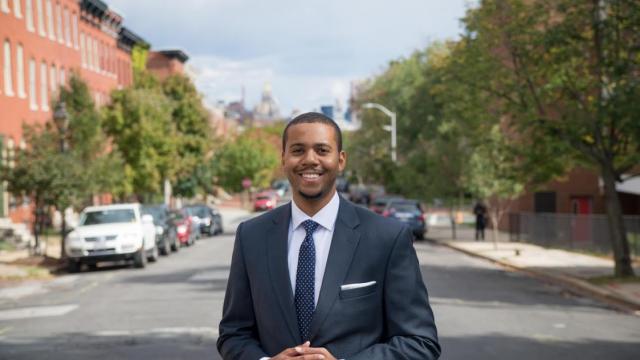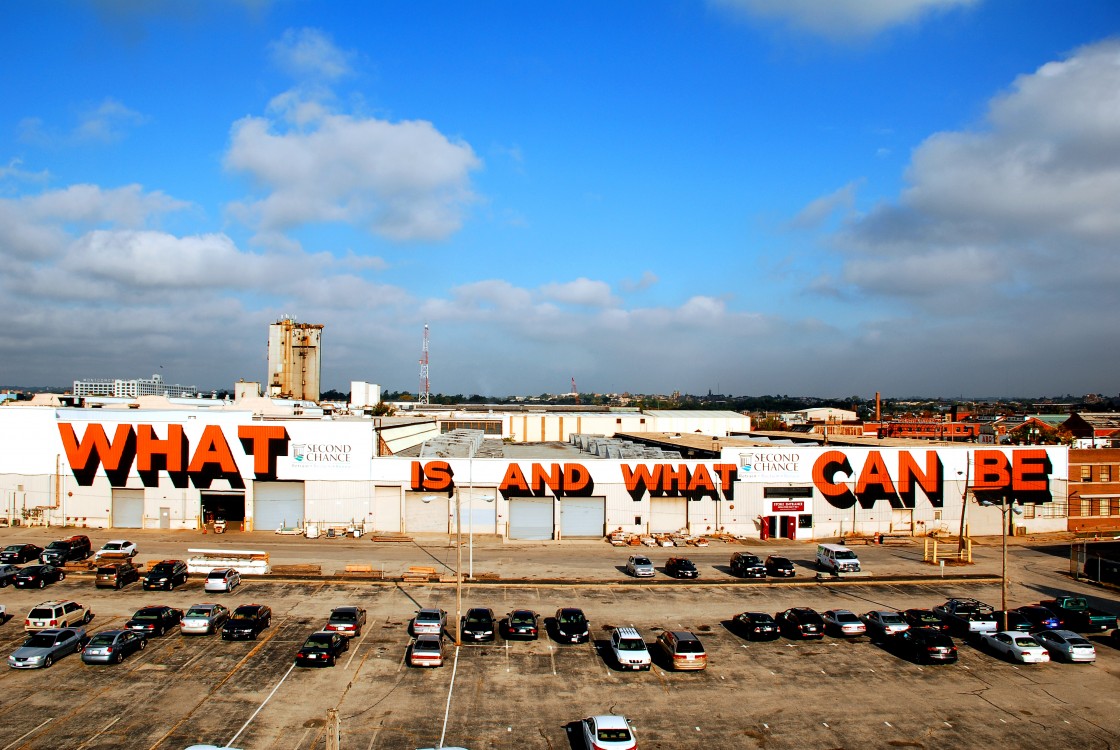
This is the fourth article in a series, “From the Ground Up,” chronicling community-level efforts to overcome economic insecurity and establish sustainable and just communities. A joint project of Occupy.com and Commonomics USA, the series features individuals and organizations around the U.S. taking power into their own hands in the service of others. Read the first, second, and third articles here.
“The only thing that beats corporate money power,” Baltimore mayoral candidate Joshua Harris told me recently, “is people power.” One might expect to hear this from community organizers everywhere. But this time is different: Harris is a member of the Green Party, he’s already a standout candidate in a city dominated by the Democratic Party machine, and he’s talking about beating corporate power in a place that has been beaten nearly to death by it.
Let's start with the obvious, painful truth: Big banks and capitalist white supremacy have devastated Baltimore, and the Democratic Party has been an accessory to the crime. Democratic Party domination in the city hasn't stopped rampant police brutality, the destruction of the city by big banks both internationally and locally, or the debt-and-derivative bondage that is bleeding city funds (including water funds) dry.
At the height of the LIBOR scandal, several banks (including JPMorgan Chase, Bank of America, Barclays, Citi and Deutche Bank) manipulated hundreds of trillions of dollars’ worth of interest rates used to fund cities including Baltimore. Their illegal activities resulted in the loss of hundreds of millions of dollars that would have funded Baltimore's government, and while those banks were found guilty of crimes, there was never any effort to restore that money. The subprime mortgage crisis, caused by asset managers turning to high-yield mortgage-backed securities and ignoring their due diligence responsibilities, devastated the city too, causing more than 14,000 foreclosures between 2009 and 2012.
But Wall Street still can’t leave the city alone. “Baltimore currently has 17 interest rate swaps on which they are paying the banks about $12 million a year on net interest costs,” Carrie Sloan, a senior research analyst at the Roosevelt Institute's ReFund America Project, told The Real News. "So that’s money that the banks are basically collecting from Baltimore that could otherwise be spent on things like infrastructure.”
Discriminatory lending practices also continue. A recent report by the National Community Reinvestment Coalition strongly criticizes banks for unequal lending practices that discriminate against African-Americans in Baltimore.
All of this has happened under the nose of Baltimore Democratic Party leadership. Now, a rising Green Party is seeking to hold public officials accountable and build leadership alternatives. On March 21, Joshua Harris won an important straw poll where 250 students, educators and activists chose their preferred mayoral candidates out of a large slate, mostly consisting of Democrats. Harris's victory was overwhelming – he won 28% in a field of 14 candidates – and he went on to win the Green Party primary, riding on the momentum of having out-shone Democratic contenders in the city.
Harris is a relatively seasoned political activist with experience as a legislative aid. He has been involved in the contentious battle to implement body cameras on Maryland State Police, and he has told local media that the biggest issue facing Baltimore is the unequal “distribution of capital.” Some may interpret this as a question about where businesses need to invest. But for Harris and other Greens on board his campaign, it’s a much deeper subject.
“Corporate capitalism and the quest to raise profit margins have led to several instances of divestment in Baltimore neighborhoods not seen as profitable or valuable,” Harris told me. “This has perpetuated poverty, inequality, and racial discrimination.” He said the conventional solution offered by Democratic Party rule in the city consists of “raising taxes on everybody to make up for [Baltimore’s] failed corporate welfare deals and the high interest rates on its municipal bonds.”
Now people want something different, and they’re coming together to build a new economy in Baltimore from the ground up. “Since [last year’s] uprising in Baltimore, many groups have come together to organize in communities,” Maryland senatorial candidate Margaret Flowers, also a Green, told me.
“New coalitions are developing and they are calling for radical change. There is a lot of enthusiasm for new economic structures because the traditional structures are so obviously failing Baltimoreans and because a lot of groundwork, such as policy development, has been done over the years. Groups have been working on creating community land trusts. Others are working on clean energy, food security and-worker-owned cooperatives. I think that people have reached that point where they see that the only way we can solve these long-term problems is by trying new solutions.”
Besides Harris, five other Green candidates – Andreas “Spilly” Spiliadis, Richard T. White, Jamie Frierson, Amanda Maminski, and Ian Schlakman – are now running for city council seats. “I think that in the past many Maryland Green voters have only been engaged at the level of voting,” Flowers said. “Now that we have so many candidates who are running serious campaigns, it is drawing more Greens out to volunteer, donate and feel more like a political party than before.”
But the barriers for candidates outside the party duopoly are formidable, she added.
“Next year will mark 50 straight years of Democrats in power. People are looking for a change. [But] most people don't know about the obstacles that independent parties face, such as the lack of resources, the barriers to ballot access and media censorship. The Green Party has done a tremendous job in Maryland of maintaining ballot status. It is a fight every time they have to renew that status and it is won with a lot of sweat and very little money. In Maryland, the Green Party has to fund and run its own primary, while the Republicans and Democrats have a taxpayer-funded primary.”
Harris agreed that raising money is important for the Greens’ campaigns, along with committed organizing efforts. “We need to raise money, of course, and most importantly, we need people who believe in progressive, sustainable change to get involved and stay involved,” Harris said. The challenge will be finding the resources – and awakening the mass consciousness – that can build genuine alternatives to corporate and party mismanagement in the city.
“I believe people are ready for government that works for all, and not just for the wealthy,” Harris said.
Matt Stannard is policy director at Commonomics USA and a member of the board of the Public Banking Institute.
If you liked what you read and want to see more original reporting on Occupy.com, donate today!
3 WAYS TO SHOW YOUR SUPPORT
- Log in to post comments












